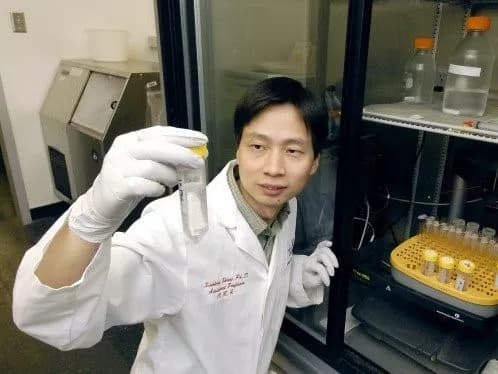
Study Shows Nanoparticles Could Be Used To Overcome Treatment-Resistant Breast Cancer
Researchers at the University of Cincinnati (UC) College of Medicine have been able to generate multifunctional RNA nanoparticles that could overcome treatment resistance in breast cancer, potentially making existing treatments more effective in these patients.
The study, published in the Dec. 14, 2016, online edition of American Chemical Society's ACS Nano and led by Xiaoting Zhang, PhD, associate professor in the Department of Cancer Biology at the UC College of Medicine, shows that using a nanodelivery system to target HER2-positive breast cancer and stop production of the protein MED1 could slow tumor growth, stop cancer from spreading and sensitize the cancer cells to treatment with tamoxifen, a known therapy for estrogen-driven cancer.
MED1 is a protein often produced at abnormally high levels in breast cancer cells that when eliminated is found to stop cancer cell growth. HER2-positive breast cancer involves amplification of a gene encoding, or programming, the protein known as human epidermal growth factor receptor 2, which also promotes the growth of cancer cells. MED1 co-produces (co-expresses) and co-amplifies with HER2 in most cases, and Zhang's previous studies have shown their interaction plays key roles in anti-estrogen treatment resistance.
"Most breast cancers express estrogen receptors, and the anti-estrogen drug tamoxifen has been widely used for their treatment," says Zhang, who is also a member of the Cincinnati Cancer Center and the UC Cancer Institute. "Unfortunately, up to half of all estrogen receptor-positive tumors are either unresponsive or later develop resistance to the therapy. In this study, we have developed a highly innovative design that takes advantage of the co-overexpression of HER2 and MED1 in these tumors."
Zhang and researchers in his lab found that these RNA nanoparticles were able to selectively bind to HER2-overexpressing breast tumors, eliminating MED1 expression and significantly decreasing estrogen receptor-controlled target gene production. The RNA nanoparticles not only reduced the growth and spread of the HER2-overexpressing breast cancer tumors, but also sensitized them to tamoxifen treatment.
"These bio-safe nanoparticles efficiently targeted and penetrated into HER2-overexpressing tumors after administration in animal models," he says. "In addition, these nanoparticles also led to a dramatic reduction in the cancer stem cell content of breast tumors when combined with tamoxifen treatment. Cancer stem cells, as you know, are tumor-causing cells that are known to play essential roles in tumor spread, recurrence and therapy resistance. Eliminating these cells could represent an improved and more desirable treatment strategy for breast cancer patients.
"These findings are highly promising for potential clinical treatment of advanced metastatic and tamoxifen-resistant human breast cancer. Further studies are still needed and hopefully soon we'll be able to test our nanoparticles in clinical trials at the UC Cancer Institute's Comprehensive Breast Cancer Center."
Materials provided by University of Cincinnati Academic Health Center. Note: Content may be edited for style and length.
Disclaimer: DoveMed is not responsible for the adapted accuracy of news releases posted to DoveMed by contributing universities and institutions.
Primary Resource:
Yijuan Zhang, Marissa Leonard, Yi Shu, Yongguang Yang, Dan Shu, Peixuan Guo, Xiaoting Zhang. Overcoming Tamoxifen Resistance of Human Breast Cancer by Targeted Gene Silencing using Multifunctional pRNA Nanoparticles. ACS Nano, 2016; DOI: 10.1021/acsnano.6b05910
Related Articles
Test Your Knowledge
Asked by users
Related Centers
Related Specialties
Related Physicians
Related Procedures
Related Resources
Join DoveHubs
and connect with fellow professionals

0 Comments
Please log in to post a comment.